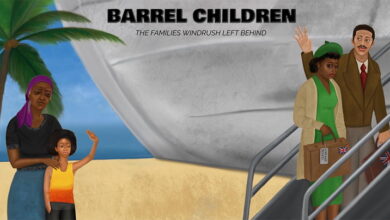The Great British Rail Sale sounds splendid – but there’s a catch

The cringe factor of transport minister Grant Shapps shrugging his North Face puffer jacket on and off in front of a green screen is enough to put anyone off their spring getaway. But here we are, with the “Great British Rail Sale”, which promises more than one million discounted train tickets from 25 April to 27 May.
The catch? Most fare types aren’t included in the sale – such as Anytime, Off-peak (with a few exceptions), Seasons and Flexi-Seasons. The vast majority of discounts are on Advanced fares, meaning that you need to commit to a journey in advance. The discounts aren’t available on all routes, and connecting journeys on different train operators don’t qualify either.
One million tickets might sound like a lot, but it’s not when you consider how many rail journeys are usually made within a 33-day period – more than 160 million. Moreover, the sale and Shapps’s attempt at on-camera humour can’t assuage my suspicion that consumers are just being tossed a few crumbs to keep us semi-sweet.
Rail travel in Britain was privatised between 1994 and 1997 by John Major’s Tory government, breaking British Rail into lots of separate companies and splitting up infrastructure, passenger and freight services. His transport secretary, John MacGregor, had a vision of a shiny, privatised system, stuffed to the gills with “entrepreneurial spirit”. Major’s privatisation programme – something even Margaret Thatcher with her love of selling off British industry refused to touch – was completed when I was six.
My experience of rail travel as a teenager and adult has been of a confused and expensive system, filled with delays, nonsensical pricing, the juggling of split-fare tickets and overcrowded and poorly-maintained trains – particularly in the Midlands.
Bamboozled by your tickets – different for different train companies, pricing that doesn’t seem to make obvious sense? Not enjoying the touted benefits of Major’s privatisation? You’re not alone. Pre-pandemic, 64 per cent were in favour of nationalising the railways, rising to 72 per cent among 18-24-year-olds. Only 19 per cent of adults said they would oppose renationalisation.
The Covid-19 pandemic had a predictable impact on rail travel, and proved that the franchise system created during privatisation was not robust enough to weather such a storm. In September 2020, the franchise system was scrapped, and the industry began to run through management contracts – meaning that the government bears the risk of fewer passengers choosing rail travel, but keeps the fares.
In the 2021 white paper, The Williams-Shapps Plan for Rail, the government admitted that: “Franchise agreements typically covered around 1,000 pages; the Key Train Requirements document runs to 185 pages . . . the Ticketing and Settlement Agreement comes in at 922 pages, so it is no wonder that passengers find ticket pricing so confusing.”
Last September, Shapps said: “The model of privatisation adopted 25 years ago has seen significant rises in passenger numbers, but this pandemic has proven that it is no longer working.” Rail operators were running trains under “emergency measures agreements” from the beginning of the pandemic, which were then replaced by “emergency recovery management agreements”. From September 2021, rail operators were promised another 18 months of taxpayer support.
To keep up to speed with all the latest opinions and comment, sign up to our free weekly Voices Dispatches newsletter by clicking here
For consumers, there’s been more crumb-tossing over the years in the form of passenger railcards – nine different types are currently available. Even millennials get one, in the form of the 26-30 Railcard. If you need to offer nine separate discount cards for rail travel, including one for adults who are mostly working and out of higher education, maybe, just maybe, there’s a problem with the price of fares more generally.
We need a simplified, affordable system of train travel for all that puts the person travelling front and centre and provides good value for money.
If we’re serious about tackling the climate crisis, surely encouraging people to use public transport, rather than their cars, should be a priority? It shouldn’t be cheaper to drive from Manchester to London compared to buying an Advance train ticket, which was the experience of some friends planning to visit me last October.
There will be some juicy deals to be snapped up in the Great British Rail Sale, but the issues with rail travel in the UK go much deeper and can’t be glossed over with a month of cut-price tickets.





